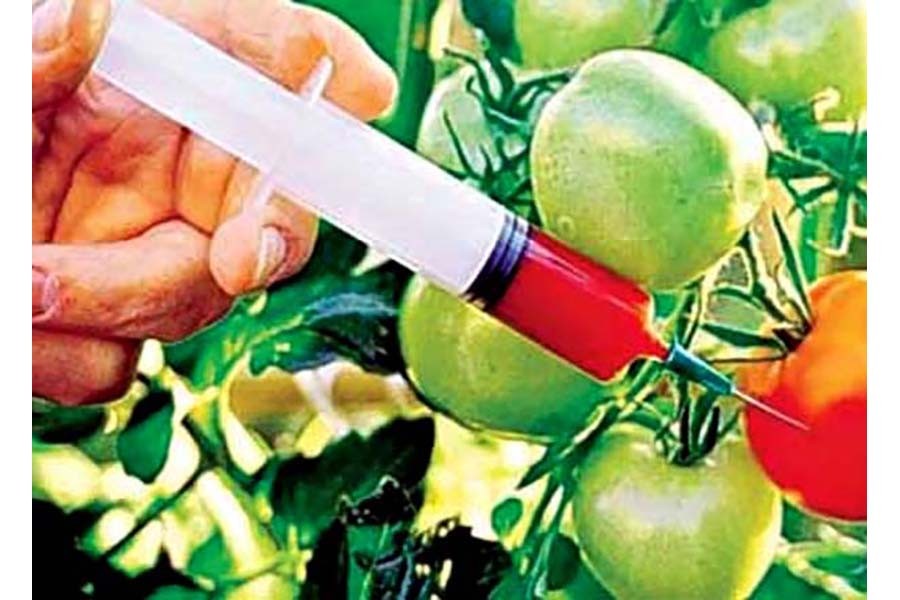The recent seizure of mangoes in bulk, artificially ripened with chemicals, in the capital's different markets, is depressing. The mango season is in officially. It's around this time of summer that the fruit starts appearing in the market. But the busting and destruction of a large quantity of the fruit this early portends a despairing situation. The suspected flooding of the market with the hazardous summer fruit follows a tolerable respite from this menace in the last couple of years. Thanks to a few measures taken by the government, the mango quality was believed to be set for rejuvenation. Supplies of chemical-free fruit soared considerably to the relief of conscious consumers. The seizure of adulterated mangoes at the wholesale points in the city belies this sense of relief. A worrying aspect of the recent raids conducted by RAB is the detection this year of a new chemical used for ripening immature mangoes. Called ethephon hormone, this substance is said to be more hazardous and harmful than the notorious formalin.
Chemically tainted summer fruits have dominated markets across the country for over two/three decades. Over time, the large cities, Dhaka in particular, emerged as easy targets of the 'syndicates' engaged in the supply of chemically treated mangoes to the market. A section of unscrupulous traders are also reportedly involved in the network. What make the capital especially vulnerable are its large population and the continuously soaring demand for food products including fruits. The villains in the summer-fruit supply and trade manipulate this frenzied trend of consumers in buying fruits without checking their edibility. The same applies to litchis, another major summer fruit of the country. Of late, people falling sick after consuming artificially ripened litchis have become a normal feature during summer. Water melons have also fallen prey to adulterers.
To say that the consumption of summer fruit in Bangladesh is fraught with myriad types of hazards is no overstatement. In fact, it is stark reality in the country at present. Apart from the consumer rights' groups, the media has long been vocal about the deteriorating situation in the mango sector. Chemically treated fruits continue to play havoc with public health. Except for stop-gap measures, few long-term remedial steps on the part of the authorities concerned have been found in place. This is unconscionable. The shattering of dreams and the feared losses facing the farmers of organic mangoes in Rajshahi and C'nawabganj is disconcerting. They have been growing mangoes in fruit-bagging method since 2016, the year that saw 90 per cent of the 665 tonnes of the fruit exported to the European Union (EU) countries comprise their produce. The method has been proven safe and chemical-free. To their great concern, the volume came down to a paltry three tonnes out of the total exports of 324 tonnes in 2017. This year they have yet to be contacted by the government department concerned. Disillusioned and awfully worried, they now brace for a catastrophic loss, with the specially grown mangoes remaining dumped. The growers accuse the authorities concerned of being biased towards the non-bagging mango farmers while preparing the exporters' list.
Evidently, it does not bode well for the country's mango sector. Besides giving the nation a bad name for exporting dubiously grown mangoes, the fruit will continue to deceive the domestic consumers -- unless the unscrupulous elements are reined in. The mass-scale unsuspecting consumption of the chemically tainted summer fruits points to the making of a creeping health disaster. It is high time to act.


